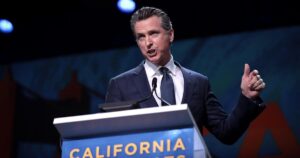Trump links autism risk to common painkiller
President Donald Trump just dropped a bombshell that’s got the medical world buzzing and expecting mothers rethinking their medicine cabinets.
On Monday, from the hallowed halls of the White House, Trump announced that using Tylenol, a household name for pain relief, during pregnancy might significantly heighten the risk of autism in unborn children, a claim backed by federal health agencies but fiercely contested by the drug’s manufacturer.
This isn’t just a casual remark; it’s a full-on public health alert delivered with America’s top medical minds in attendance. Trump didn’t mince words, declaring that the surge in autism rates is among the most disturbing health trends in our nation’s history.
Alarming autism announcement unpacked
“The meteoric rise in autism is among the most alarming public health developments in history,” Trump stated, framing the issue as a national crisis. Well, that’s one way to get everyone’s attention—nothing like a dire warning to wake us up to a problem many have overlooked.
Trump went further, cautioning that Tylenol use in pregnancy should be limited unless absolutely necessary. He’s not just sounding alarms; he’s pushing for action, urging women to think twice before reaching for that bottle. Turns out, even everyday choices might carry heavier consequences than we thought.
The president also took a swipe at childhood vaccination schedules, suggesting the sheer number of shots is overwhelming for young bodies. “It’s like 80 different vaccines,” he claimed, painting a picture of medical overreach that’s sure to stir debate. While the science on vaccines remains settled for many, Trump’s words resonate with those questioning the system.
Health agencies rally behind claims
Backing Trump’s announcement, FDA Commissioner Marty Makary pointed to compelling research, including studies from the Boston Birth Cohort, showing a direct link between prenatal Tylenol use and neurodevelopmental issues like autism. “We now have data we cannot ignore,” Makary emphasized. That’s a bold statement, but in a world obsessed with dismissing inconvenient truths, it’s a call for accountability.
Health and Human Services Secretary Robert Kennedy Jr. echoed this urgency, revealing that agencies like the NIH and CDC are tearing down old barriers to fast-track research on autism’s causes. He criticized past NIH efforts for dodging environmental factors, comparing it to ignoring cigarettes while studying lung cancer. Ouch—that’s a zinger that hits the bureaucracy where it hurts.
Kennedy also hinted at a darker side, suggesting an environmental toxin, possibly tied to corporate profit, is driving this epidemic. “This is coming from an environmental toxin, and somebody made a profit,” he charged. It’s a conspiracy worth probing, especially when trust in institutions is at an all-time low.
Tylenol manufacturer fires back
Not everyone’s on board with Trump’s warning, least of all Kenvue, Tylenol’s manufacturer, which pushed back hard against the claims. “Acetaminophen is the safest pain reliever option for pregnant women,” the company insisted. Well, that’s confidence, but when federal agencies disagree, who are expecting mothers supposed to believe?
Kenvue doubled down, arguing that solid, independent research shows no link between their product and autism, and warned that such announcements could endanger pregnant women’s health. It’s a fair point—scaring people away from safe options without airtight proof is a risky game. Still, the doubt’s been planted, and that’s hard to unring.
Meanwhile, the CDC’s own data paints a grim picture, with autism diagnoses rising to 1 in 31 eight-year-olds in 2022 from 1 in 36 two decades prior. The agency suggests better detection and services might play a role, but that explanation feels like a convenient sidestep when families are desperate for real answers.
National debate on autism intensifies
Trump hinted at this bombshell a day earlier during a memorial for Charlie Kirk, teasing a major medical revelation. “Tomorrow we’re going to have one of the biggest announcements,” he promised. Keeping us on edge seems to be his specialty, and it worked—everyone’s talking now.
The administration isn’t stopping at warnings; they’ve pledged a massive research push, launched earlier this year, to uncover autism’s roots. With Kennedy and others claiming agencies are finally working together, there’s hope for clarity, though skepticism about government efficiency lingers. If they can deliver, it might just restore some faith in the system.
At the end of the day, this story isn’t just about Tylenol—it’s about trust, health, and the future of our kids. Trump’s words, whether you agree or not, have ignited a firestorm of discussion, forcing us to confront tough questions about what we’re putting into our bodies. In a culture quick to dismiss warnings as fearmongering, maybe it’s time to listen up—after all, caution isn’t always a bad thing.




